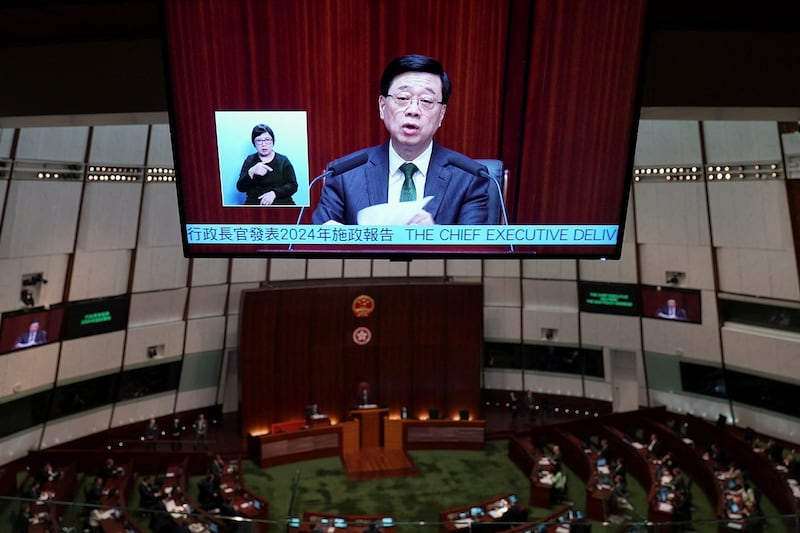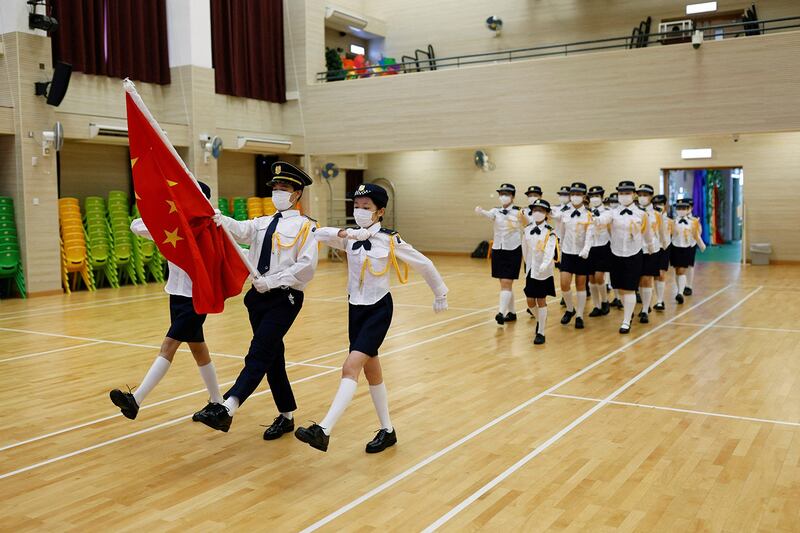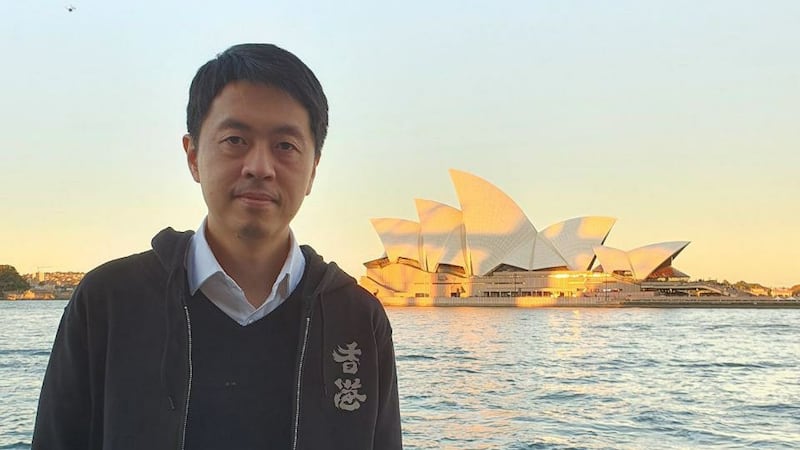Hong Kong’s government wants to celebrate the 80th anniversary of Japan’s defeat in World War II next year, a sign that the administration of Chief Executive John Lee may further step up efforts to spread patriotic fervor among the city’s seven million residents, commentators said.
“Next year is the 80th anniversary of victory in the War of Resistance Against Japanese Aggression,” Lee told lawmakers during his 2024 Policy Address at the Legislative Council on Wednesday. “The government will hold commemorative activities to enhance patriotism.”
The government would also launch a new program of “patriotic education” in primary and secondary schools, stepping up the teaching of Chinese history and geography “increasing patriotic historical elements in exchanges with mainland China,” Lee said.
Lee’s second-in-command, Chief Secretary Chan Kwok-ki, added in a later comment: “Patriotic education is the foundation for safeguarding national security.”
He said the activities were intended “to enhance patriotic spirit.”
Commentators said the announcements pave the way for further indoctrination of the city's residents, particularly its children, along the lines of patriotic education programs that already exist in mainland China.

In June, the city's Education Bureau criticized some schoolchildren for their "weak" singing of China's national anthem, the "March of the Volunteers," at flag-raising ceremonies that are now compulsory as part of patriotic "national security" education from kindergartens to universities.
The announcements come amid an ongoing crackdown on dissent under two security laws, the second of which was passed in March, leading to the convictions of three people over the use of banned slogans in graffiti, a T-shirt and social media.
‘Control people’s thoughts’
Exiled former pro-democracy lawmaker Ted Hui said Lee’s policy address was the first time a Hong Kong leader has mentioned World War II in a policy address, which he said should have focused more on economic prosperity and social welfare.
“They want to implement the same system they have in mainland China, promoting patriotism and nationalism to control people’s thoughts,” Hui told RFA Mandarin in a recent interview.
“They want to wash away multiculturalism in Hong Kong with xenophobic sentiments used to resist foreign oppression,” he said. “I worry that the next generation of Hong Kongers will be xenophobic and hate the West, further decoupling Hong Kong from the international community.”

Political commentator Sang Pu said anti-Japanese sentiment may not take root in Hong Kong, whose people have a long-running love affair with Japanese culture.
Hong Kongers spent HK$7.8 billion (around US$1 billion) in Japan in the first quarter of this year, according to figures from the Japanese National Tourism Organization, compared with around HK$17.6 billion (US$2.25 billion) spent by tourists from mainland China in the same period, as bargain-hunters flocked to the country to stock up on household necessities.
“This isn’t just about celebrating the 80th anniversary,” Sang said. “He wants to use it as a way to spread Chinese nationalism, patriotic discourse and distorted views of history to Hong Kong.”
“They want to totally change people’s perceptions of Japan, because people ... can only unite under the banner of the Chinese Communist Party if there's an imaginary enemy to fight,” he said.
He said us-vs-them thinking would change the whole atmosphere of Hong Kong.
“They want to integrate it to use the same patriotic teaching materials as China,” Sang said, calling the move “political warfare.”

Local people expressed varying degrees of indifference toward Lee’s annual policy address when interviewed by RFA Cantonese on Wednesday.
“Didn’t read it,” one said, while another said they “had no interest at all.”
“Didn’t pay attention to it,” commented another person.
A retiree who gave only the surname Sun for fear of reprisals said he thought the policy address lacked measures to boost the flagging economy.
“The economy is jet-lagged, and a lot of shops have been closing down lately,” he said.
Translated by Luisetta Mudie.
